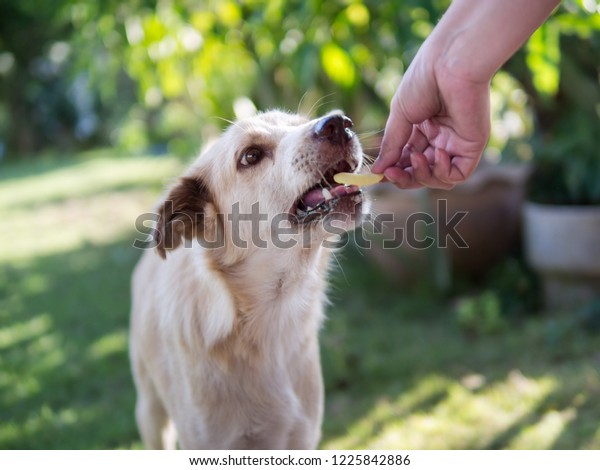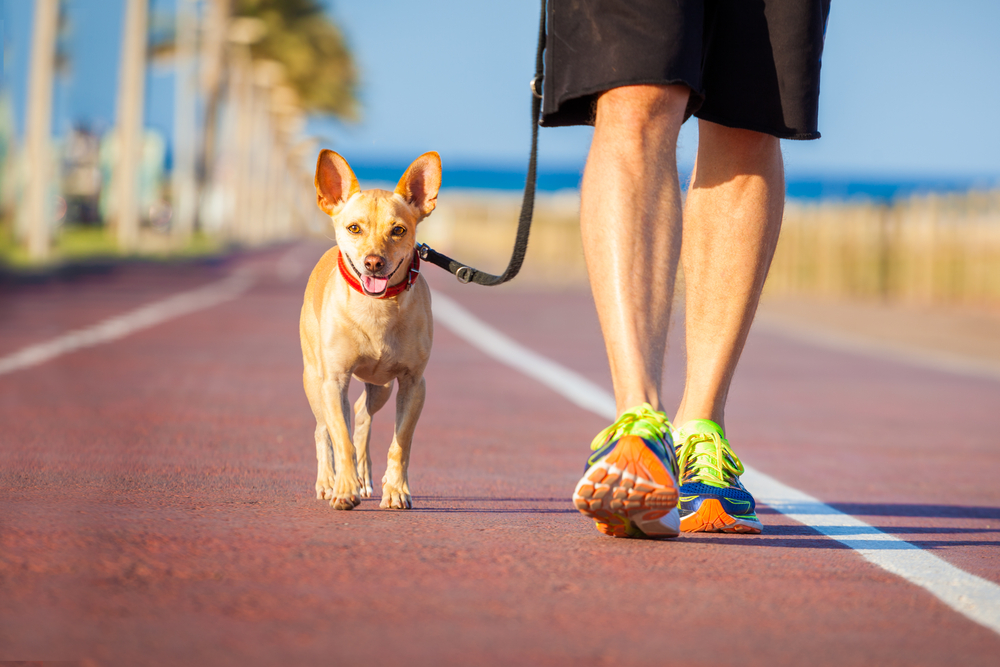
You've probably tried to stop a begging dog at least once. How do you stop your pet from begging? There are many things you could do to ensure that your dog doesn't become a constant beggar. Here are some suggestions: You should establish a feeding schedule that you will stick to. 2. Remove the bowl from the dining room table. 3. Avoid feeding your dog food at inappropriate times.
Lack of food may explain why your dog begs. It might seem obvious that you would want to share your food, but many foods from humans are toxic to dogs. Thankfully, there are several pet-safe snacks you can give your dog. After they have been fed for a while, you will be able to stop them from begging.

A begging dog may be due to a boredom issue. Perhaps you have offered food or other treats to your pet to keep him/her from beggaring. You might be inadvertently encouraging the behavior. Boredom could also be a possible reason for the problem. A bored dog will need more stimulation and attention than one that is deprived. You can change your dog’s behavior by being patient and persistent.
The most important thing you can do is to reinforce the rules for the begging dog. This strategy will not work overnight. Although it might take some time for your dog to see results, eventually begging will stop working. It will make your life much easier when your pet realizes that you don’t reward begging. This approach has been successful for many people and is highly recommended.
The stay command can be used to stop your dog from begging. Using this command will prevent your dog from jumping up on guests and barking at the doorbell. A good option for a beggar dog is the "stay" command. This command will end the behavior and other undesirable behaviors in your home. You will find that your dog is less likely to go hungry if it stays in one room. It won't take long to train your dog to stay in one room.

You don't have to be a bad parent if your dog is constantly begging. If your dog doesn't eat, it's okay. Offer your dog a treat, such as a bone or a stuffed toy. This will keep your dog busy and stop him from beg. To stop your begging dogs from beggaring, teach them that they are not allowed to eat.
FAQ
How to feed a pet.
Four times daily is the recommended amount of food for cats and dogs. Breakfast is usually dry kibble. Lunch is typically some kind of meat, such as chicken or beef. Dinner usually includes some kind of vegetable like broccoli or peas.
Cats have different dietary requirements. Canadian foods are best for cats. These can include chicken, salmon, tuna and sardines.
Fruits and vegetables can be enjoyed by your pet. However, they shouldn't be given too often. Overeating causes cats to become sick.
You shouldn't allow your pet water right from the faucet. Instead, let him drink out of a bowl.
Make sure that your pet gets enough exercise. Exercise will help keep your pet healthy and his weight down. Exercise is good for his health.
After your pet eats, make sure you wash the dishes. This will prevent your pet from inhaling harmful bacteria.
Brush your pet often. Brushing your pet regularly can help remove dead skin cells that could lead to infection.
You should brush your pet at the very least once a week. Use a soft bristle brush. Avoid using a wire brush. This can cause harm to your pet's smile.
Always supervise your pet's eating habits. He should chew his food well. If he does not, he might choke on bone fragments.
Garbage cans should be kept away from your pet. This can harm your pet's health.
Your pet should not be left alone in an enclosed space. This includes cars, hot tubs, and boats.
Is it a good idea to spay/neuter your dog?
Yes! Spaying and neutering your dog is very important.
It does not only decrease the number unwanted puppies, but also reduces the likelihood of certain diseases.
Female dogs are more likely to get breast cancer than male dogs.
The risk of testicular tumors is higher in males and females.
Your pet's spaying and neutering will also stop her having babies.
Do I choose a puppy or kitten?
This question really depends on your personality. Some people are more fond of kittens than they are puppies.
But, in general, puppies tend to be more active and playful. Kittens sleep a lot, and they are very gentle.
Both types of animals require lots of attention from their owners. They will quickly grow up and will require lots of care.
They will also require regular medical checkups. You will need to take them to the vet regularly.
Is it appropriate for children to own a pet at what age?
Children under five years old shouldn't have a pet. Children under five years old should not own cats and dogs.
Children who own pets often get bitten by them. This is especially true when the dog is small.
Also, some breeds of dogs (such as pit bulls) can be extremely aggressive towards other animals.
A dog may appear friendly but it will still attack other animals.
It is important to train your dog if you get a pet dog. Ensure that your child is always supervised when playing with the dog.
How often do I need to groom my dog every day?
Grooming your pet dog is very important. It helps maintain his coat and keeps him clean.
Brushing your dog twice a week is a must. After each meal, brush your dog.
You can remove dirt and hair from your dog's fur by brushing. Brushing his teeth will make him appear healthier.
Brushing his ears regularly will prevent ear infections.
Are there any signs my dog may be ill?
Many symptoms can indicate that your dog may be sick. You may notice the following symptoms:
-
Vomiting
-
Diarrhea
-
Lethargy
-
Fever
-
Weight loss
-
Reduction in appetite
-
Coughing
-
Difficulty Breathing
-
Bleeding from below the nose
-
Stool or urine contaminated with blood
These are just a handful of examples. Your vet will be able to tell you what to watch out for.
What is the best pet?
The best pet? One you love. There is no one right answer. Every individual has his/her own opinion on the best pet.
Some believe cats are more intelligent than dogs. Some people believe that dogs are more loving and loyal than cats. Others argue that birds make the best pets.
No matter which type of pet you decide on, you have to choose what type of personality you want.
If you are friendly and outgoing, a dog might be the right choice. A cat or dog would be the best for you, if you are shy and reserved.
Also, think about the size of your house and apartment. A smaller apartment will mean that your pet will require a smaller size. However, a larger house will mean that your pet will need more space.
Remember that pets need lots of attention. They must be fed often. They need to be taken for walks. They should be brushed and cleaned.
You'll be able pick the best pet for you if you have all of these knowledge.
Statistics
- In fact, according to ASPCA, first-year expenses can sum up to nearly $2,000. (petplay.com)
- A 5% affiliation discount may apply to individuals who belong to select military, law enforcement, and service animal training organizations that have a relationship with Nationwide. (usnews.com)
- Here's a sobering reality: when you add up vaccinations, health exams, heartworm medications, litter, collars and leashes, food, and grooming, you can expect a bill of at least $1,000 a year, according to SSPCA. (bustle.com)
- For example, if your policy has a 90% reimbursement rate and you've already met your deductible, your insurer would pay you 90% of the amount you paid the vet, as long as you're still below the coverage limits of your policy. (usnews.com)
- Pet insurance helps pay for your pet's medical care, with many policies covering up to 90 percent of your vet bills. (money.com)
External Links
How To
How to choose a good name for your pet?
Name selection is one of most important decisions when you adopt a pet. It is important to choose a name that best reflects the person and personality of your pet.
It is important to consider how other people might refer to you - for instance, if they are going to be called by their name in conversation. Finally, think about how you'd like to be referred. What do you prefer, for example, "dog" or pet?
Here are some tips and tricks to help you get going.
-
Name your dog a name that reflects its breed. Look up the names of the breeds if you know the breed (e.g. Labradoodle). Ask someone who is familiar with dogs to recommend a name that fits the breed.
-
Think about the meaning of the name. Some breeds were named after people or specific places, while others are just names. For example, the Labrador Retriever named "Rover" because he was always running!
-
Consider what you would like to be called. Is it more fun to be called "dog" than "pet"? Would you rather call your dog "Puppy", "Buddy" or "Buddy?"
-
Include the first name of the owner. It's sensible to give your dog an owner's name. But, don't limit yourself by limiting your family's names. Your dog might grow up to be a member your family.
-
Many pets may have more than one name. A cat may have many names, depending on where she is located. At home, she could be called "Kitty Cat", but when visiting friends, "Molly". This is especially true of cats who live outdoors. They often adopt their names to fit their environment.
-
Be creative There are no rules saying that you must stick to a specific naming convention. Be unique and memorable in your choice.
-
Check that your chosen name isn't used by any other person or group. This will ensure that you don't accidentally steal another's identity.
-
Don't forget that choosing a name is not an exact science. Sometimes, it can take time to find the right name for your dog. Keep at it until you find the right match.